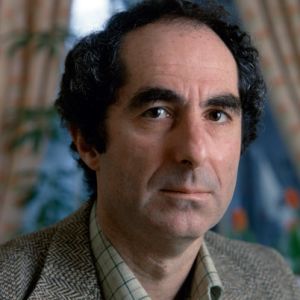
Philip Roth
Biography
Famed American novelist Philip Roth was born on March 19, 1933, in Newark, New Jersey. Roth graduated from Bucknell University in 1954. In 1959, he won the National Book Award for Goodbye, Columbus. Roth had his first best-seller with 1969's Portnoy's Complaint. Over the years, he has earned many accolades for his work, including a second National Book Award for 1995's Sabbath's Theatre and a Pulitzer Prize for American Pastoral. His later works include Everyman (2006) and Nemesis (2010).
Childhood & Early Life
Philip Roth was the second child born to Bess and Herman Roth in the Weequahic neighbourhood of Newark, New Jersey.
He completed much of his schooling from in the Weequahic High School graduating from the same in 1950. During his years at school, he was quite famous among his friends, colleagues and teachers for his wit and humor.
Finishing his preliminary education, he enrolled himself at the Bucknell University to attain a degree in English. Henceforth, he attained admission at the University of Chicago from where he received his MA in English Literature.
For a brief duration, he took up the profile of an instructor at the University of Chicago’s writing program. He then drafted himself into the United States Army which he served for two years.
Career
Post completing his military duties, he sought to write professionally. Starting off from writing fiction and criticism for various magazines, including movie reviews for The New Republic in 1959, he came out with his debut book, ‘Goodbye Columbus’ and Five Short Stories’ for which he received a National Book Award the following year.
The massive success of his debut venture inspired him to write further and consequently he came out with two more novels, ‘Letting Go’ and ‘When She Was Good’. While the former was published in 1962, the latter came five years later in 1967.
While he had received popularity as a writer, the big break still seemed distant. However, ‘Portnoy’s Complaint’, his fourth published novel, eradicated all such complaints and helped him gain widespread commercial and critical success thus cementing his position as a bestseller writer.
Not the one to limit his creative outflow, he experimented with various genres of writing all through the 1970s, from comedy to political satire. He came out with the novel, ‘Our Gant to the Kafkaesque The Breast’ that had David Kepesh as lead protagonist. He was reprised in the 1977 novel, ‘The Professor of Desire’
It was during the later years of the 1970s that he created his alter ego a fictional character by the name Nathan Zuckerman who featured in many of his novels and novellas.
Meanwhile, he took to teaching creative writing at the University of Iowa and Princeton University. Thereafter, he moved to the University of Pennsylvania, where he taught comparative literature before retiring from teaching in 1991.
The year 1995 witnessed the publication of his second National Book Award winning novel, ‘Sabbath’s Theatre’. Unlike his other books and novels, the main protagonist of the book is a lewd and coarse character Mickey Sabbath who is a disgraced former puppeteer.
In 1997, he came up with the first of what would become a Zuckerman trilogy, ‘American Pastoral’. A Pulitzer Prize winning novel, “American Pastoral’ depicts the life of a Newark athletic star and his tragedy when he comes to term with the fact that his own daughter has turned into a domestic terrorist.
In 1998, he came up with the second instalment of the series, ‘I Married a Communist’, which was later followed by ‘The Human Stain’ in 2000. While the former depicted the McCarthy era, the latter focussed on identity politics in 1990s America.
In 2001, he yet again reprised the character of David Kepesh for the short novel, ‘The Dying Animal’. Three years later, he cames up with the novel, ‘The Plot Against America’ wherein he fantasized America with Charles Lindbergh as its President.
He came up with his next publication, ‘Everyman’ in which he writes on a flashback mode relieving the childhood, desires, illness and the impending death of the protagonist who is unnamed all throughout. He however carries an uncanny resemblance to this ace writer.
He revived his character of Nathan Zuckerman yet again in 2007 with the publication of his novel, ‘Exit Ghost’. It has been the last of his Zuckerman novels till date.
In 2008 and 2009, he came up with his 29th and 30th books - ‘Indignation’ and ‘The Humbling’. While the former is set during the period of Korean War in 1951, the latter depicts the story of the last performance of Simon Axler.
In 2010, he came out with his 31st book, ‘Nemesis’ thus coming up with the final of the four short novels including, ‘Everyman’, ‘Indignation’ and ‘The Humbling’.
